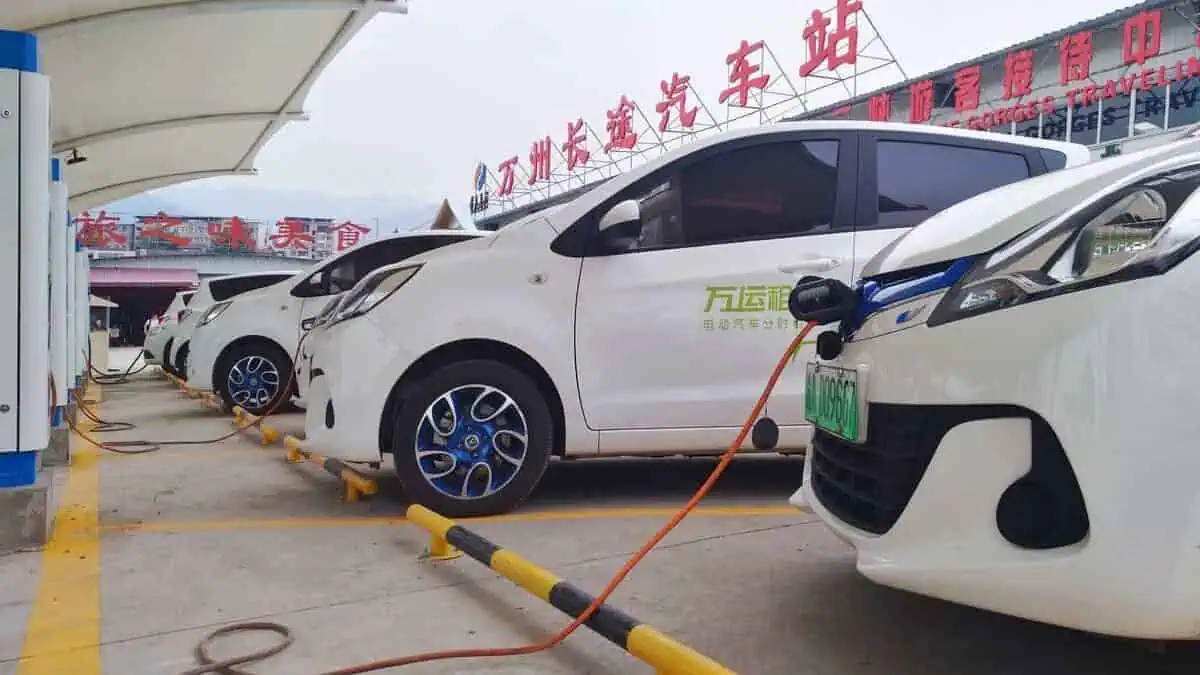China remains the world’s largest electric vehicle market, apart from being the leading country in the global automotive industry. Last year, the Asian country’s sales reportedly reached 5.9 million EVs, accounting for 59% of the global market.
As expected, local brands like BYD, Wuling, Chery, Changan, and GAC continue to be among the dominant players in their home market. As demonstrated by Counterpoint Research data, these local EV makers accounted for a whopping 81% of the market.
In able to compete with these brands’ strong presence, global automakers decided to develop and offer advanced technologies like driver-assist software to gain customers’ interest.
“China’s domestic brands are leading the market in the development and implementation of advanced assisted driving systems, capitalizing on their early-entry advantages in the electric and intelligent vehicle sector. These brands have an edge over other joint ventures in the planning and execution of smart assisted driving systems.”
Canalys stated in its recent report
Considering the Chinese brands’ expertise in such technologies, global automakers like BMW and Volkswagen must come up with the most advanced software to beat their local rivals.
“China auto makers are accelerating vehicle platform, technology upgrade or innovation, leading to outstanding user experience. China EV products are much more competitive than before, and China will continue to see EV penetration expanding, in our view.”
BofA Securities analysts
Global automakers’ efforts to catch up in the Chinese EV market
On Friday, BMW’s Chinese arm announced its plans to rev its Level 3 autonomous driving tech development. BMW China aims to launch these EVs by late 2023 or early next year.
It is worth noting that hands-free, autonomous driving remains mostly disfavored by Chinese authorities. However, few automakers like XPeng has secured the necessary permit to test the technology.
Meanwhile, German legacy automaker Volkswagen Group will invest about $700 million in XPeng to obtain a 4.99% share in the Chinese EV startup.
“We are now accelerating the expansion of our local electric portfolio and at the same time preparing for the next innovation step.”
Volkswagen AG board member for China, Ralf Brandstätter
The new partnership between the German and Chinese EV players aims to launch two new EV models with ADAS features in 2026.
Likewise, Tesla and Chinese automakers are also accelerating their efforts to advance their autonomous driving software toward “full” autonomy.
For instance, BYD announced a new partnership with tech firms Nvidia and Horizon Robotics for autonomous driving tech development.
In addition, Leapmotor will also build a new EV platform that it plans to license to other brands for smart EVs. Meanwhile, Japanese legacy automaker Toyota will intensify its electrification efforts to rival Chinese automakers.
“The Chinese market is growing at an unprecedented pace. Toyota will also work together as a group to reform how we work & think to survive in China. By promoting local development … we will attempt to develop and provide competitive products that can satisfy Chinese customers at a fast pace.”
Toyota China CEO Tatsudo Ueda
See Also:
- Volkswagen commences first autonomous driving pilot program in the US
- BMW China to localize L3 autonomous driving development
- Mercedes-Benz to offer SAE Level 3 system, conditional autonomous driving in the US
- MIT: Computational load for widespread autonomous driving could be a massive driver of global carbon emissions
- China’s NIO and Tencent announced a partnership for autonomous driving
The competition in the Chinese EV market is undoubtedly intensifying as global startups and legacy automakers attempt to grow their business operations there. However, it would remain a challenge for these brands, considering the Chinese automakers’ expertise in such technologies.





